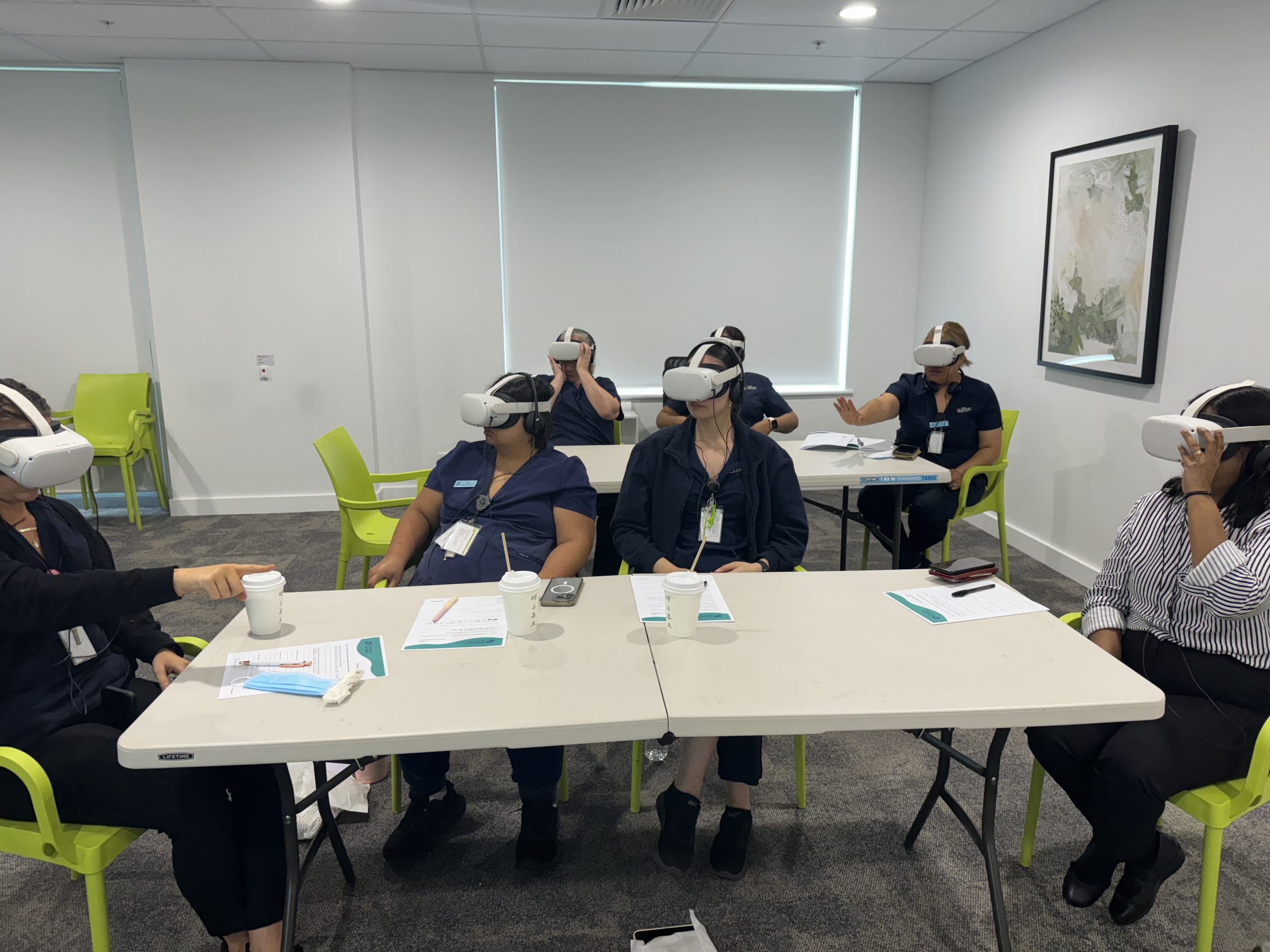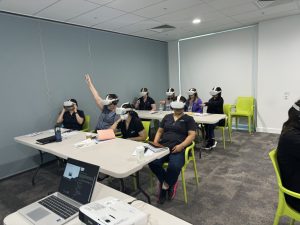Aged care staff at The Royce, Penrith, have entered a new world of training, using cutting-edge Virtual Reality to improve their skills in caring for people living with dementia.
The D-Esc VR Training Program, developed by Dementia Australia, trains healthcare professionals to effectively manage behavioural emergencies in people living with dementia. The program focuses on de-escalating high-stress situations, reducing the risk of harm, and improving overall safety for both residents and staff.
Simulating real-world scenarios, the technology allows trainees to experience firsthand the emotional and physical escalation that can occur in dementia care. This hands-on approach fosters empathy, enhances communication skills, and equips staff with practical tools to respond in a calm and compassionate manner in stressful situations.
The Royce Chief Operating Officer Aidan O’Flaherty said staff who had completed the program had more confidence in managing the unique challenges posed by caring for residents with dementia and improved skills for handling behavioural emergencies.
“We’re excited to continue incorporating the lessons learned from D-Esc into our daily practices,” he said.
“This training has not only provided our team with invaluable tools for managing behavioural emergencies, but it has also reinforced our commitment to providing the highest quality care for people living with dementia.
“At The Royce, we are always looking for innovative ways to support our staff and improve the lives of those in our care. D-Esc VR training has been a significant step in achieving both of these goals, and we’re confident that its impact will continue to benefit our team and the residents we care for.”
The D-Esc VR training program teaches staff to recognise the emotional and physical signs of escalating behavioural stress, understand how that stress affects people living with dementia, how to de-escalate potentially volatile situations based on each individual person’s needs, how to minimise risk to everyone involved and how to identify strategies to prevent future incidents.
Mr O’Flaherty said the program reinforced how important it is to treat people living with dementia with empathy and how using effective communication can help improve residents’ wellbeing.
“By completing the D-Esc VR training, our team has gained more than just technical skills, we’ve built confidence in our ability to handle challenging situations with empathy and professionalism,” he said.
The D-Esc VR program is just one of the pioneering technological advances being used at The Royce to improve dementia care.
The dementia and memory care program also includes Tovertafel Original, an interactive light projection games program that fosters social interaction in people with dementia. Designed to alleviate the withdrawal and apathy typically seen in the latter stages of the disease, the program brings generations together, increases physical and social activity, and increases positive emotions.
The Royce also uses NeuronsVR, a program that enables the wearer to virtually explore new environments without having to physically leave their secure, controlled space.



